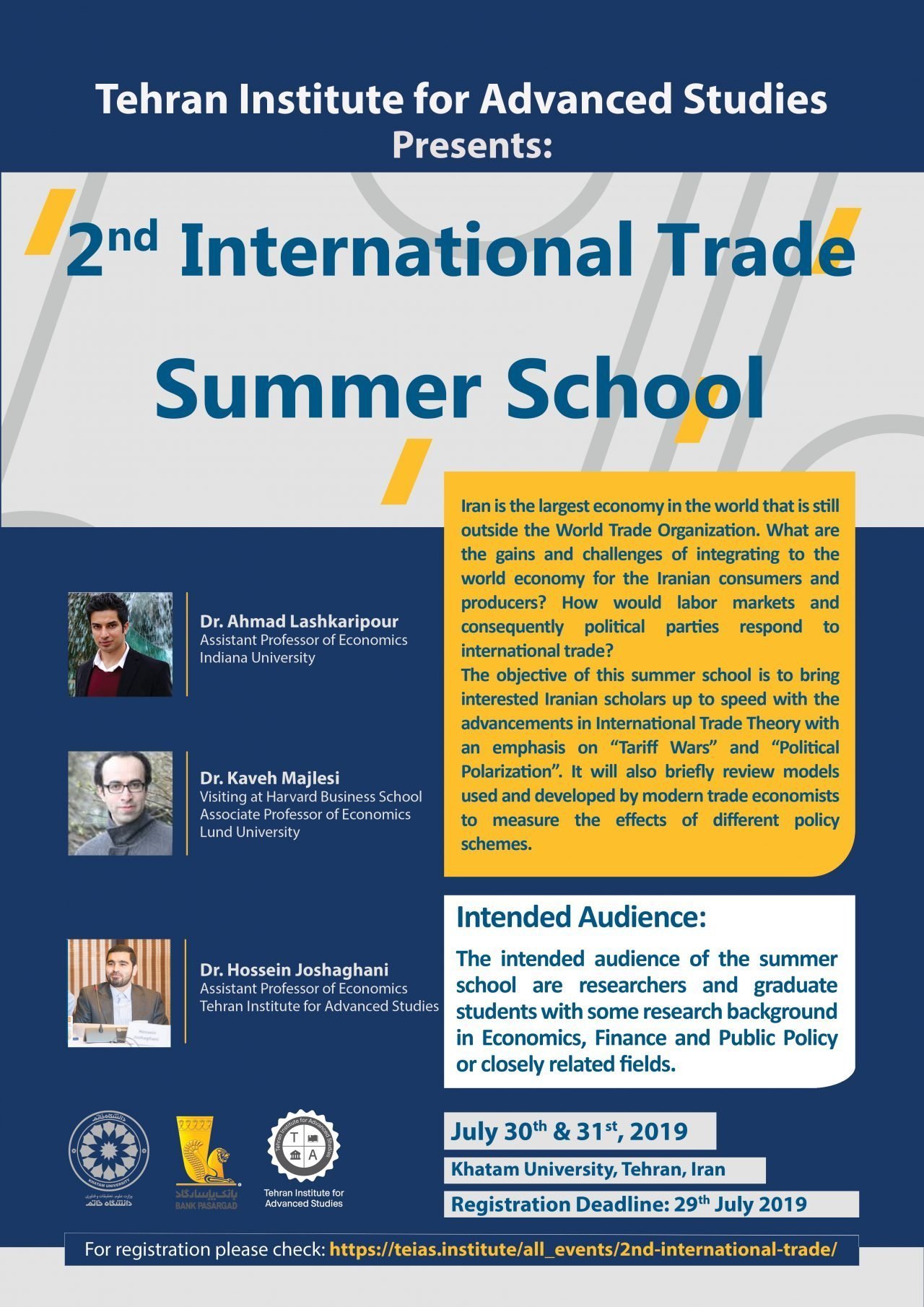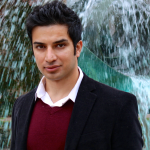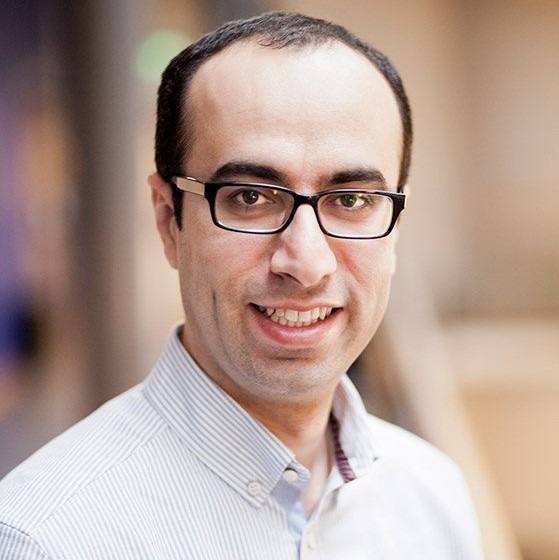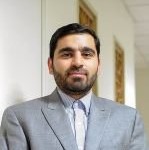
Address: Mollasadra, North Shiraz, Hakim Azam, No 30.
See location on Google map
Executive Chair
Mohammad Morovati (TeIAS)
Scientific Chair
Hosein Joshaghani
Organization Chair
Fereshte Allahverdi
Overview
Iran is the largest economy in the world that is still outside the World Trade Organization. What are the gains and challenges of integrating to the world economy for the Iranian consumers and producers? How would labor markets and consequently political parties respond to international trade? To answer these policy questions, it is imperative to understand the global economy and its institutions from both theoretical and empirical perspectives. The objective of this summer school is to bring interested Iranian scholars up to speed with the advancements in International Trade Theory with an emphasis on “Tariff Wars” and “Political Polarization”. It will also briefly review models used and developed by modern trade economists to measure the effects of different policy schemes.
Target Audience
The intended audience of the summer school are researchers and graduate students with some research background in Economics, Finance and Public Policy or closely related fields.
Speakers

Dr. Ahmad Lashkaripour
Assistant Professor of Economics
Indiana University
I am an Assistant Professor of Economics at Indiana University.
My Research interests are at the intersection of International trade and Economic development. My work emphasizes the role of composition (product-mix) in trade. Specifically, I study the link between the characteristics of a nation and the structure of its foreign trade. My recent work shows that the welfare-improving effects of trade are remarkably larger in the developing world, when one accounts for the composition of trade flows.
In my free time, I play and watch soccer. I’m an avid supporter of Man Utd.

Dr. Kaveh Majlesi
Visiting at Harvard Business School
Associate Professor of Economics
Lund University
My main areas of research are Labor economics and Household finance. In labor economics, I am mostly interested in how individuals and households react to labor market shocks. In a number of ongoing or finished research projects, I have been looking at the effects of labor market shocks, generated by rising exposure to trade competition, on households’ or individuals’ decisions on voting and migration as well as the allocation of decision making within households. In “Household finance”, I study the determinants of portfolio allocation and consumption and how and why they are related across generations.

Dr. Hosein Joshaghani
Assistant Professor of Economics
Tehran Institute for Advanced Studies (TeIAS)
Hosein Joshaghani is an empirical economist, interested in using big data to better understand labor markets and the macroeconomy. His current research is mainly on identifying mechanisms through which discrimination takes place in the labor market, role of gig economy as a shock absorber and the optimal design and reform of labor markets.
He joined the Graduate School of Management and Economics at Sharif University of Technology as a visiting assistant professor after receiving his Ph.D. in Economics from the University of Chicago in 2017. Since May 2019 he joined TeIAS as an assistant professor of economics and finance.
Schedule
9:10-10:45 Ahmad Lashkaripour; “Introduction to Modern International Trade Models and Policy Tools”
11:15-12:15 Kaveh Majlesi; “Introduction to Trade and Labor Markets”
14:00-15:15 Kaveh Majlesi; “The Electoral Consequences of Rising Trade Exposure”
9:00-10:25 Ahmad Lashkaripour; “Measuring the Cost of a Tariff War: A Sufficient Statistic Approach”
10:45-12:00 Hossein Joshaghani; “Export and Financial Shocks”
